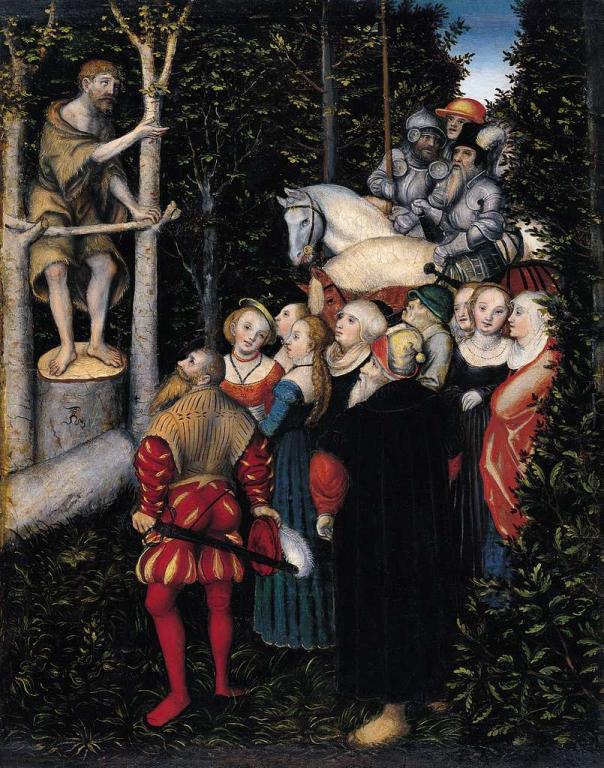His hearers are cut to the heart. They ask him, what kinds of fruit do we need to be bearing?
And the crowds asked him, “What then shall we do?” And he answered them, “Whoever has two tunics is to share with him who has none, and whoever has food is to do likewise.” (Luke 3:10-11)
This rings true. We all need to be more compassionate and generous. Then people with specific vocations ask them what they, in particular, should do. John’s answers may be surprising:
Tax collectors also came to be baptized and said to him, “Teacher, what shall we do?” And he said to them, “Collect no more than you are authorized to do.” Soldiers also asked him, “And we, what shall we do?” And he said to them, “Do not extort money from anyone by threats or by false accusation, and be content with your wages.” (Luke 3:12-14)
He didn’t tell the tax collectors, widely reviled for their corruption and for selling out to Rome, to quit their filthy trade and find another line of work. Rather, he told them to just “collect no more than you are authorized to do.” He didn’t tell the soldiers (Roman soldiers? Jews in Herod’s army also in service to Rome?), to practice war no more, to desert, to become pacifists. Rather, he told the to just “not extort money from anyone by threats or by false accusation, and be content with your wages.”
In other words, just do your jobs. But do not sin in your jobs by using them as an opportunity to harm the neighbors that your job brings you into contact with. This is to “bear fruits in keeping with repentance.”
Our good works are primarily done in vocation as the works of our vocation. Not exclusively: We need to be sharing our tunics and giving food to the hungry also. This would be in the general estate, the informal interactions outside of the specific estates of family and the church and the state, what Luther called the “common order of Christian love” in which God also calls us to temporary acts of service.
But our time is mostly taken up by our family and the workplace (the estate of the household), plus the church (another estate) and our duties of citizenship (another estate). So most of our good works, the fruits of our faith, must necessarily take place in those arenas. In each of these estates, we have specific vocations or callings: as spouse, parent, child; as employee or employer; as ruler, official, or citizen.
By the same token, our sins also mostly take place in those arenas. In the family: adultery, cruelty, neglect, disobedience; in the workplace: cheating customers, laziness; mistreating workers; in the church: pastors and parishioners mistreating each other; violating God’s Word; lack of devotion.
And each vocation has its specific temptations and besetting sins. The news is full of stories about sexual harassment and abuse in the workplace, scientists who fake their data, parents who abuse their children, children who rebel against their parents, academics who manipulate or exploit their students instead of teaching their subjects; workers who mistreat their colleagues or customers; what John the Baptist said about tax collectors and soldiers, and on and on.
It is a beneficial spiritual exercise to consider your various vocations in the family, the workplace, the state, and in the common order, and reflect on the occasions for sin that you need to be on guard against. And the sins that you have committed in those vocations. In fact, this is exactly what we are told to do in the Catechism, in answer to the question “which sins should we confess?” [my emphasis]:
Consider your place in life [i.e., your vocation] according to the Ten Commandments: Are you a father, mother, son, daughter, husband, wife, or worker? Have you been disobedient, unfaithful, or lazy? Have you been hot-tempered, rude, or quarrelsome? Have you hurt someone by your words or deeds? Have you stolen, been negligent, wasted anything, or done any harm?
Whereupon in church we receive absolution from Christ through the pastor by virtue of his vocation:
“Upon this your confession, I, as a called and ordained servant of the Word, announce the grace of God to all of you, and in the stead and by the command of my Lord Jesus Christ I forgive you all your sins in the name of the Father and of the Son and of the Holy Spirit.”
Illustration: The Sermon of St. John the Baptist by Lucas Cranach the Elder via Google Art Project, Public Domain














